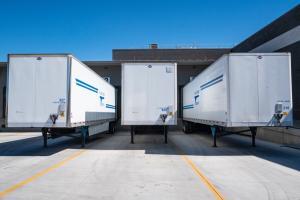In today’s fast-paced world, transportation is a critical part of most businesses. Whether it’s the transportation of goods or people, having a reliable transportation management system (TMS) is essential for any company looking to stay ahead of the competition. A good TMS helps businesses save money, reduce waste, and improve efficiency in all aspects of their transportation operations.

So what makes a great transportation management system? Here are some of the key elements that are essential for any TMS to be considered great:
Robust Routing and Scheduling Capabilities: A great TMS should have the ability to route and schedule deliveries, pickups, and other transportation activities in the most efficient way possible. This helps reduce transportation costs and improve the efficiency of the entire supply chain.
Real-Time Tracking and Visibility: Having real-time tracking and visibility of all transportation activities is critical for any TMS. This allows businesses to monitor the progress of their shipments in real-time and make adjustments as necessary.
Integration with Other Systems: A great TMS should be able to integrate seamlessly with other systems, such as warehouse management systems (WMS) and enterprise resource planning (ERP) systems. This helps ensure that all aspects of the supply chain are working together seamlessly.
Analytics and Reporting Capabilities: A good TMS should provide detailed analytics and reporting capabilities that allow businesses to track key performance indicators (KPIs) and identify areas for improvement.
Scalability: A great TMS should be able to grow with the business. This means that it should be scalable and able to handle increased transportation volumes as the business grows.
User-Friendly Interface: A TMS should have a user-friendly interface that is easy to use and navigate. This helps improve user adoption and ensures that all employees can use the system effectively.
Automation: A great TMS should be able to automate many of the tasks associated with transportation management. This includes tasks such as carrier selection, load optimization, and real-time tracking.
Cost Management: A TMS should help businesses manage transportation costs by providing visibility into costs and helping to identify areas for cost reduction.
Customer Service: A great TMS should provide excellent customer service and support. This helps ensure that businesses can quickly resolve any issues that may arise with their transportation activities.
Flexibility: A TMS should be flexible and able to handle a wide range of transportation activities. This includes everything from simple point-to-point shipments to more complex multi-stop shipments.

In conclusion, a great transportation management system is essential for any business that relies on transportation. By providing robust routing and scheduling capabilities, real-time tracking and visibility, and seamless integration with other systems, a TMS can help businesses save money, reduce waste, and improve efficiency in all aspects of their transportation operations. So if you’re looking to improve your transportation management, make sure to consider these key elements when evaluating potential TMS solutions.





